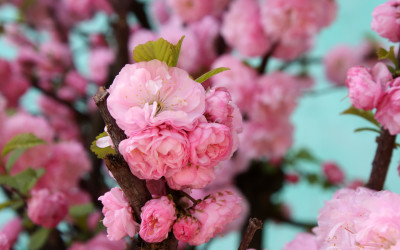Seniors and Spring Allergies
Late spring is finally in full bloom, but that is not the only thing that is blooming. Blooming trees, grass, and weed — they all produce pollen, which causes allergic reactions. Pollen, in the form of microscopic powder, affects many of us and can be especially challenging for our aging loved ones, whose immune systems may already be weakened.
What is an Allergy?
An allergy is simply a sensitivity to a foreign substance (an allergen) that causes our immune systems to overreact. Allergic reactions vary. Some of us have very mild reactions, whereas others have reactions that may be life-threatening. If your loved ones already suffer from asthma, eczema, hives, hay fever, they may be particularly vulnerable during spring allergy season.
Allergy Symptoms
As we breathe in pollen-laced air, many of us can experience the following symptoms:
• itchy throat
• itchy and watery eyes
• runny nose and sneezing
• nasal congestion and coughing
• itchy skin and irritability
• fatigue
As you can see, many of the symptoms may be mistaken for a cold or the flu. What is important is not to overreact, but to embrace the precautions outlined herein-below.
Pollen and Other Allergens
It is also important to keep in mind, that airborne pollen may not be the only culprit that causes allergies. Many Americans, particularly seniors, may have allergic reactions to certain foods they eat, the beverages they drink, medications and shots they take, pet dander from their pets, and the list goes on.
How to Limit Allergies?
If your aging loved ones suffer during spring allergy season, ask them to postpone the outdoor activities.
When outdoors, they should wear glasses that may keep at least some of the pollen from entering their eyes. Wearing a hat is also advisable. Upon returning home, they should change clothing that may be covered with microscopic pollen. The clothing should be washed before they wear it again. If your loved one spent a considerable portion of the day outside, taking a shower to wash off the pollen from hair and skin may help. Drinking plenty of water and herbal tea may also help to flush away the pollen that entered the body while breathing.
Many nutritionists believe that consuming organic vegetables, which are high in vitamin C and serve as immune-system boosters, may lower allergic reactions to pollen during spring allergy season. Additionally, foods like dark leafy greens, apples, walnuts, flax seed, may further reduce allergic reactions.
Non-organic foods are laced with pesticides and herbicides, which are commonly known to increase allergic reactions.
Controlling Pollen at Home
When at home, it is advisable to close windows and use air conditioning during the spring allergy season. Vacuuming carpets, rugs, and upholstered furniture is also advisable. Wet dusting and mopping may help to eliminate pollen from furniture and floors. When the allergy season is over, we advise on replacing the air conditioning and vacuum filters.
We hope that with the herein-above best practices, your loved one will avoid unnecessary suffering during the spring allergy season.
Is your aging loved one a spring allergy sufferer?
Do you have an advice you would like to share on the best ways to cope with it?
With love for the Elderly…
We Are Social On:

